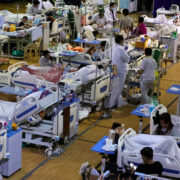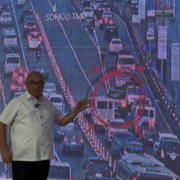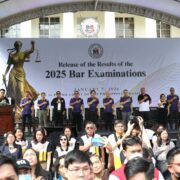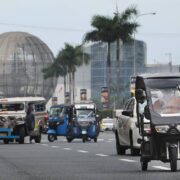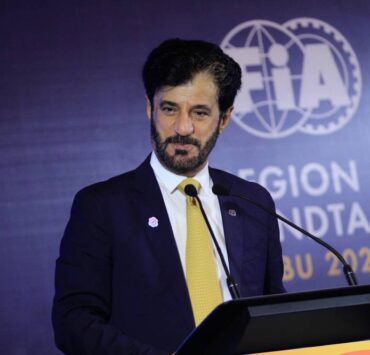FIA takes the lead in promoting mobility, tourism that delights and conserves

The Federation Internationale de l’Automobile (FIA) is best known as the global governing body for motorsports, particularly in top-rank events like Formula 1 and the World Rally Championship.
But FIA President Mohammed Ben Sulayem said the organization is playing a major role in making tourism and mobility worldwide cleaner for generations to come.
“We are part of it with our motorsport and motorsport tourism is very important to us,” he said in an exclusive interview with Inquirer Mobility at the sidelines of the recent FIA Region II Roundtable in Cebu.
“People travel thousands of miles to reach Formula 1,” Sulayemadded. “So for us, we have to be responsible when it comes to tourism.”
Tourism that stands the test of time
Sulayem also noted that the FIA is offering its expertise in other forms of tourism, such as leisure and historical trips, through its over 250 clubs around the world like the Automobile Association of the Philippines (AAP).
“You have to be responsible and educate awareness,” he said. “If it is a historical site, you should preserve it for the next generation. Through our clubs, it can really bring positive results.”
Sulayem added that since his appointment as United Nations (UN) Ambassador for Sustainable Tourism in Sport this year, he has gotten numerous letters of support from FIA clubs who want to help meet the organization’s goals.
As of press time, the FIA has achieved an 8.3-percent reduction in emissions per employee over the last five years. It is also the first sport federation to be designated an observer at the UN Climate Change Conference.
“Of course, we will be engaging with tourism departments and tourism companies to improve and that’s only the beginning,” he said. “But unless we do it together, the achievement will be minimal. There is a plan and the plan is going to be executed.”
Sulayem also said the FIA is keeping a close eye on the rise of monkeypox cases in Africa. The World Health Organization declared the disease a global public health emergency last August 2024, the second time in two years.
“We keep our clubs very aware and, in the meanwhile, it will affect tourism,” he said. “But there is always a cure and we just have to follow the procedures and we should also maintain our communication with this area. Definitely, there will be an effect, but I don’t think it is going to last.”

EV is not the only solution
Sulayem also highlighted the importance of promoting multiple modes of clean mobility, noting the dropping sales of battery-electric vehicles (EV) in markets like Germany.
“EV is not the only solution,” he said. “It is part of the solution, but there are so many ways of having sustainable mobility – part of it is the fuel, part of it is the hybrid, part of it is hydrogen, part of it is biofuel. So all these things, we are looking into.”
This approach has even extended into Formula 1, where Sulayem said the upcoming power units for 2026 will not only reduce the maximum amount of fuel for each car from 100 kilograms to 70 kilograms per race, but also opened the door for more teams and original equipment manufacturers (OEM) to take part in the series.
“When more OEMs come, they can actually do the heavy weightlifting when it comes to sustainability,” he said. “Who can deny when you put regulations to make the air cleaner? Do you really think any of the manufacturers can say no to us? Of course not because this is our responsibility.”
Sulayem said the FIA is in constant communication with OEMs to provide diverse options for clean mobility, citing Toyota Motor Corporation’s example of exploring hydrogen-fuel technology at the expense of EV development.
“The FIA has been a leader and will stay a leader because we share so much in common with our OEM,” he said. “We will never stop pushing when it comes to sustainability and clean mobility.”





